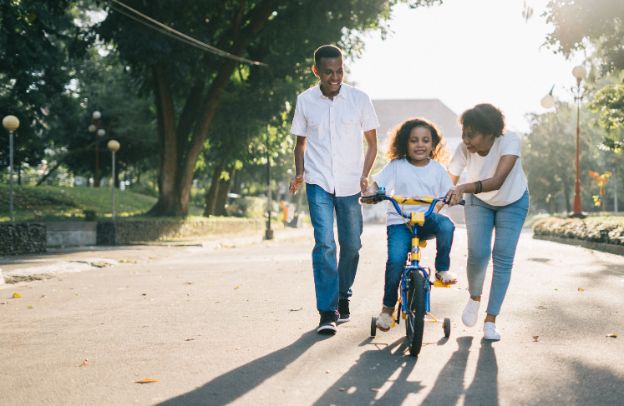How to Improve Your Family Memory Building in 5 Ways

The world and everything around us are getting fast and equipped these days. We often forget things and when we forget memories it turns out to be frustrating for all of us. Genetics also plays a major role in certain memory loss diseases such as dementia or Alzheimer’s. With growing old age, the brain neurons often get weak or tired thereby resulting in memory loss as well.
Want to learn more about storytelling? Start by downloading the first chapter of The Storytelling Series for Small Businesses.
There are certainly many things that play a quite major role in building family memory in a pretty adequate way. Health or diet plays a significantly striking role in building family memory more strongly. However, there are certain ways you can improve your family memory building. Here are the top 5 ways:
How one can improve memory in a family
People who have a significant store of positive memories since childhood are usually happier as well as healthier. They are also more tolerant of others and have better cognitive skills. Such people are usually more optimistic, less likely to develop a mood disorder, and can cope more with stress.
Moreover, by regularly depositing happy yet positive memories into the memory banks of all family members, we can make sure that there will be healthier dividends that may last forever. Here are a few tips to improve the memory-building of families:
1. Positive behaviors and attributes
Noticing and highlighting positive attributes and behaviors among family members is proven to help improve family memory-building. There is a plethora of opportunities to correct, discipline, or reprimand a child or teen. In case a child is to be emotionally strong and healthy, those times need to be balanced with positive behavior and comments from the ones who love them.
Therefore, try noticing every time they made their best effort as well as when they have been generous, forgiving, or kind. Highlight the times they share.
Also, share their interests. Try paying attention to the positive things that create a family environment nurturing the kids’ resilience and showing them how they can be a positive force in the world.
2. Make a big deal about little things
Improving family memory-building has a great influence by making a big deal of little things. When your kid sees a bug, is it a BUG? Or is it just a bug? By walking by, you are not making it memorable. Instead, if you stop to look at it with your kid, comment on its legs, and try to get it to hop on a rod, wonder aloud whether it has eaten or whether it has a family or not, etc. – now, it is quite a memorable event.
For a kid in its growing age, there are new yet important events and things happening every day. It’s up to you to notice and share their excitement with them.
3. Go on adventurous trips
Unusual adventures tend to stand out in someone’s memories. However, that does not mean we have to spend loads of money or go somewhere extraordinarily special. Although if you can afford it, it’s fun going on adventures every now and then. Also, with a sense of adventure and a light heart, almost any activity can become memorable.
You can take your kids grocery shopping every week or month and let one of your kids select a portion of food that no one has ever eaten before in the family. When you get home, you can figure out how to cook it and try it all in a fun way. Maybe these kids when growing up will do the same with their own kids as well.
4. Meditate and sleep right
That’s right. Meditation and sleep work a lot better when taken care of. Meditating for an hour regularly has some great benefits on the overall health of everyone. Soothing and relaxing plays a major role in reducing stress and anxiety as well.
Meditation increases the grey matter of the brain as well. And grey matter tends to increase the potential of strengthening memory storage. Another research was done in which it was proven that students undergoing meditation have a lot better spatial working memory as compared to the other group that did not meditate.
Sleeping 8 hours a day has also major benefits on the health of every folk. Sleeping right after learning anything is very beneficial. Students are often advised not to revise or learn anything during the last night of their exam. Rather students are encouraged to have a good sleep before the exam to relax their minds and body.
Anything that has been retained in breaks has a huge effect on the overall mind and body. Lack of sleep results in poor memory of the folks. Health experts advise every being to sleep for at least 7 to 9 hours regularly.
5. Moderate weight and practice mindfulness
Weight control and maintenance of it is highly recommended around the world. Junk or sugary meals lead to poor brain working and impart pretty much a decline in cognitive memory. Youngsters are potentially a subject of obesity these days.
This is because they prefer already-cooked meals from markets and avoid healthy foodstuff. The research was done in the states that led to a result that youngsters aged 18-35 years of age are obese and have poor memory build-up in them. While elders who eat healthily have a lot better hold on their memories.
With obesity and the revolving world, mindfulness is never practiced and this also has a bad impact on one’s memory and information storage. Mindfulness is mistaken for meditation but both are different. Mindfulness is a major mental habit and is important for young generations because they have a whole new life ahead of them.
Mindfulness results in better memory storage and retrieval and also imparts a healthy impact on the physical ability of folk practicing it. It is wise to pay attention and put complete focus on the nearby surroundings to avoid the later hassle of everything
Conclusion on How to Improve Your Family Memory Building in 5 Ways
Many other factors lead to increased memory-building in families. Diet, exercise, and food intake play very important roles. Sleeping adequately also potentially upgrades one’s memory storage patterns. In the end, it’s all about how we take care of our health collectively. Memory-related diseases are also pretty risky but with controlled measures, we can reduce the risk.
Want to learn more about storytelling? Start by downloading the first chapter of The Storytelling Series for Small Businesses.





